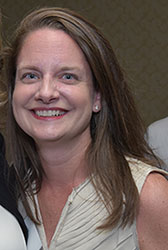Predictions of the chaos that would result from the switch to ICD-10 were greatly exaggerated, with many health care professionals calling it Y2K all over again. Insurers and medical professionals alike agree that the transition has been smooth with few glitches so far, so dba reached out to optical retail chains that also have a medical component to find out how they fared during the switch to ICD-10. Here are their answers:
Jonathan Rosin, MD, co-president, Rosin Eyecare and Comprehensive Eyecare Physicians, P.C., Chicago

How did you prepare for ICD-10? During the summer of 2014, we were (not so eagerly) preparing for the imminent implementation of ICD-10. At that time, I understood the rationale for health care providers in the U.S. to join a large number of our international colleagues in a more detailed system of recording and reporting disease. The value of collecting and analyzing the details of various ailments holds not only profound economic implications but also a better understanding of the effects of various diseases on each other. However, at that time, I found resources to help our company in the transition to be anemic. Fortunately, ICD-10 was delayed until now.
As a result, our industry had time to prepare. Over the summer of 2015, our team found numerous seminars that aided in our understanding of what the transition to ICD-10 was going to require. We also hosted several meetings for our optometrists, ophthalmologists and ophthalmic technicians in which we hired industry experts to educate us on the nuances of ICD-10.
Additionally, we created several “cheat sheets” with ICD-9 equivalents to the more complicated ICD-10 codes and braced ourselves for weeks of a steep learning curve and payment denials as October 1 approached. Most importantly, our electronic health record (EHR) vendor did a great job in preparing for ICD-10. They developed an automated coding module that assigns ICD-10 codes to each diagnosis that the doctor chooses and then associates the level of service with those codes without requiring our staff to look up the ICD-10 equivalent of already familiar ICD-9 terminology.
What did you expect to be difficult about switching to ICD-10 that turned out not to be challenging at all? While the transition from the written medical record to the digital EHR version was somewhat agonizing, the move to ICD-10 was simple and seamless. More importantly, it worked perfectly on day one!
What results of switching to ICD-10 are still too soon to tell? While it is way too early to tell if there will be a positive impact on our business, I can report that we have not experienced the feared “pain” we anticipated. We have received timely payments by insurers (both vision and medical) without any denials based on coding issues. In my opinion, so far, the transition to ICD-10 turned out to be “Y2K” all over again.
Angela McCoy, vice president, business operations, MyEyeDr., Vienna, Virginia

How did you prepare for ICD-10? We did both lecture and video training to ensure doctors were properly taught new coding habits. Videos could be re-reviewed after the lecture to ensure doctors and staff were well prepared. During the month of September we sent laminated coding cheat sheets, upgraded software, provided desktop coding translators, and mobile device apps to ensure we were ready for October 1st.
What has been the most challenging part of switching to ICD-10? Now the wait is on to ensure we are paid properly.
What did you expect to be difficult about switching to ICD-10 that turned out not to be challenging at all? Software systems, ExamWriter, EyefinityEHR and Acuity Logic have made the change seamless.
Given the silliness of some codes, such as “struck by duck” and “problems in relationship with in-laws,” we invite you to share the codes that you find the most unusual. Z73.1 Type A behavior pattern.
What results of switching to ICD-10 are still too soon to tell? Claim payments should start any day now.
Mark D. Wade, OD, director of professional relations, Crown Vision Center, St. Louis

How did you prepare for ICD-10? We engaged expert speakers to present to the group in an effort to introduce the concept and begin the learning process. In addition to in-person presentations by John McGreal, OD, we attended video webinars by John Rumpakis, OD. Finally, we published and presented each provider with code conversion tables for the top 30 most commonly used ICD-9 codes in the practice.
What has been the most challenging part of switching to ICD-10? Not knowing what to expect and the fear of under preparation.
What did you expect to be difficult about switching to ICD-10 that turned out not to be challenging at all? We were quite concerned that the coding page in our EHR system would not correctly link ICD-9 and ICD-10. It turned out to be a non-issue and, with a few minor exceptions, the coding has been essentially automatic.
What results of switching to ICD-10 are still too soon to tell? Will our claims be reimbursed?